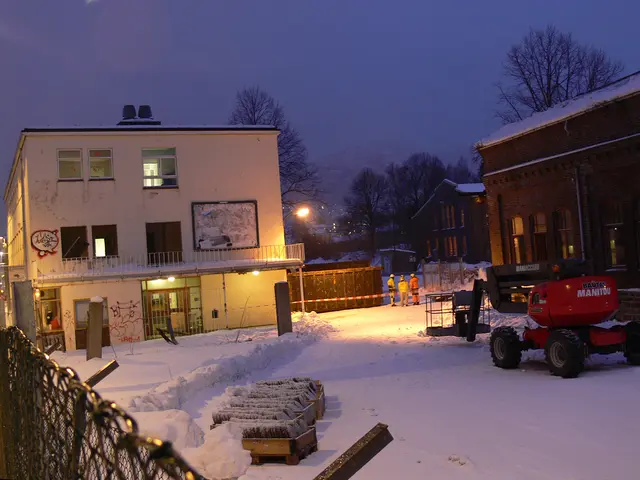Northeast residents and businesses face challenges due to trade restrictions at borders, affecting daily lives and economic stability.
Trade restrictions imposed by the Indian government on trade with Bangladesh have caused considerable economic harm to several border towns in the northeastern states, locals have said. The trade restrictions, implemented over escalating bilateral tensions, have affected local economies in these regions, which have historically relied on land ports for cross-border trade.
India has 13 land ports and four water ports with Bangladesh across the northeastern states, of which Meghalaya's Dawki, Tripura's Akhaura, and Assam's Sutarkandi are the busiest, according to local traders. The primary exports from the northeast include coal, stone, limestone, ginger, onion, rice, dry chilli, and fruits, while the major imports comprise wooden furniture, plastic products, cement, GI Sheets, waste cotton, iron rods, fish, pickles, soft drinks, biscuits, and food products.
However, these imports have been restricted, which is expected to impact Bangladesh more than India, according to Amaresh Roy, general secretary of the Indo-Bangla Chamber of Commerce and Industries (Guwahati Chapter). Roy estimated that nearly 3,500 traders in northeastern states hold an Importer-Exporter Code (IEC) issued by the Directorate General of Foreign Trade (DGFT) and are directly involved in import-export. However, the impact stretches beyond these traders, affecting also truck owners, drivers, repair shops, food stalls, daily wage workers, and businesses that depend on India-Bangladesh trade, with Roy estimating over 10,000 indirectly dependent parties.
The trade ban has notably impacted Sutarkandi land port in Assam, an essential trade point between the two countries. Local residents in this area have expressed concern about the consequences of this trade ban, with earnings dropping dramatically for those dependent on cross-border trade. Chandan Das, a goods loader at the Sutarkandi land-port, reported earning ₹500 to 750 per day before the trade restrictions but is now only earning ₹100 to 150 per day and struggles to support his family. Local businesses, like Salman Ali's tea-stall near Sutarkandi land-port, suffer from the drop in trade.
Security concerns have contributed to these trade restrictions, with traders stating that none of the land ports in northeastern states have facilities to check the quality of food and quarantine it if necessary. The fear of contaminated food reaching Indian consumers has been raised.
In neighbouring Meghalaya, the trade ban has disrupted traditional border commerce, affecting the livelihoods of thousands of people who rely on cross-border exchanges. Within just five days of the halt in border trade, the state's commerce and industries department recorded a revenue drop of approximately ₹2.54 crore. The export of coal, boulder stones, and limestone from Dawki, one of the busiest land customs stations, has been suspended due to purported procedural and weighing issues, coupled with reported political instability across the border.
In Tripura, the situation appears less severe because a few important trade items, such as edible oil, fish, LPG, and crushed stones, were exempted from the restrictions. However, the uncertainty and potential costs associated with obtaining fresh supplies have raised concerns among traders. In Mizoram, the suspension of exports to Bangladesh has caused significant challenges for ginger traders, which is the state's largest market for ginger exports.
Overall, the trade restrictions threaten to disrupt established supply chains, raise prices, and strain business relations in the border communities of the northeastern states, while potentially benefiting domestic industries. The broader implication is a decline in cross-border economic interdependence, with lasting impacts on regional stability and growth.
- The trade restrictions implemented by the Indian government on trade with Bangladesh have significantly impacted the busiest land ports in the northeastern states, such as Meghalaya's Dawki, Tripura's Akhaura, and Assam's Sutarkandi, which traditionally rely on cross-border trade for their local economies.
- The primary exports from the northeast, including coal, stone, limestone, ginger, onion, rice, dry chilli, and fruits, have been affected by the trade restrictions, while imports like wooden furniture, plastic products, cement, GI Sheets, waste cotton, iron rods, fish, pickles, soft drinks, biscuits, and food products have been restricted.
- The trade ban has not only affected the 3,500 traders in northeastern states who hold an Importer-Exporter Code (IEC) issued by the Directorate General of Foreign Trade (DGFT) but has also extended its impact to truck owners, drivers, repair shops, food stalls, daily wage workers, and businesses that depend on India-Bangladesh trade, making over 10,000 parties indirectly affected.
- These trade restrictions are not only expected to affect the economies of the northeastern states but also have international implications, potentially straining business relations, disrupting supply chains, raising prices, and leading to a decline in cross-border economic interdependence, with lasting impacts on regional stability and growth.







